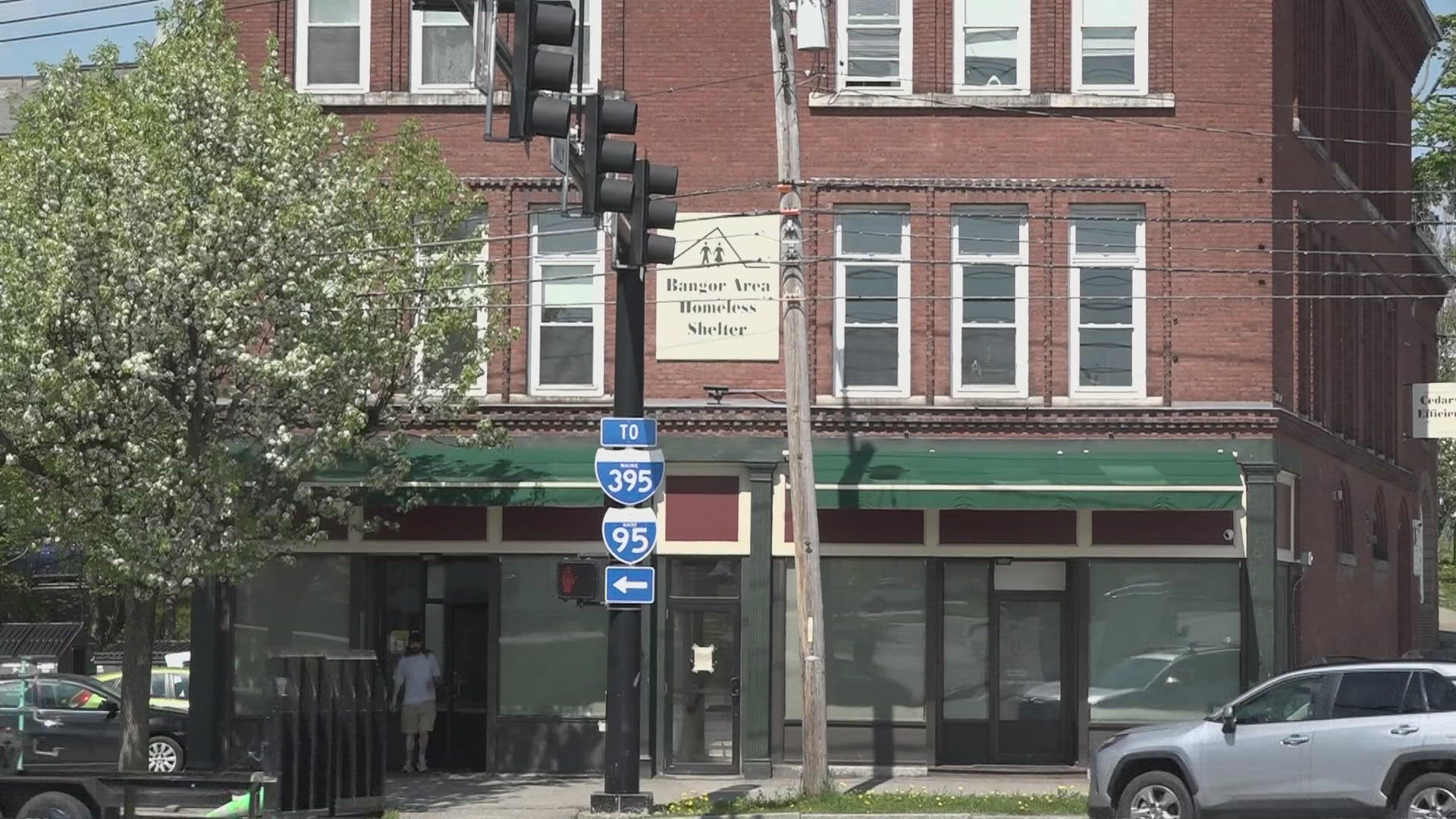BANGOR, Maine — More funding for homeless shelters in Maine was included in the state's supplemental budget after the Maine Legislature agreed to allocate $7.5 million that will be split between five low-barrier shelters, but shelters across the state that do not fall in that category will now have to find private funding to keep their doors open this fiscal year.
LD 2136, which was a bill that would have provided $10 million in funding split amongst various shelters in the state to help fill critical funding gaps, did not pass the Legislature's appropriations committee.
Bangor Area Homeless Shelter Director David Kronholm said his shelter and many others were counting on that bill to pass, hoping that it would provide guaranteed funding.
Kronholm said now, after the bill's failure, shelter directors are scrambling to find private donations, as they do year after year.
"It's difficult to have a budget where you're projecting on people's generosity to give money," Kronholm said.
But Kronholm explained that's what many homeless shelters in Maine are forced to do.
"A few legislatures that said, 'I thought we already funded the shelters,' and you did. You funded one-third of the low barriers. And the low barriers are an important part," Kronholm said.
Although acknowledging the importance of keeping low-barrier shelters open, Kronholm explained there are shelters like his, which is a dry shelter, that don't fall in that category.
"At this point, we're looking at how we're going to sustain the cost of keeping these shelters open," Kronholm said.
It's a similar situation in southern Maine. Megan Gean-Gendron is the director at the York County Shelter in Alfred. Gendron said the York County shelter is now a dry shelter, but it cannot take in people experiencing homelessness who are at risk of having medically life-threatening events.
Both Bangor Area Homeless Shelter and York County Shelter have a yearly $1 million budget, but both shelters receive $300,000 or less in annual government funding and are forced to search high and low for the remaining dollars.
"We don't know where this funding will come from," Gean-Gendron said.
She explained the $300,000 in funding her shelter receives from the Emergency Shelter and Housing Assistance Program (ESHAP) does not cover the shelter's bottom dollar.
Gean-Gendron said monthly, she struggles to find the money to simply pay her staff, explaining that the overhead costs like electricity, fuel, increasing minimum wage, and other recurring items have all reached unbelievable highs.
She explained the shelter's expenses have increased 30 percent since COVID-19.
Gean-Gendron further explained that the shelter's doors are only open now because an unexpected $500,000 donation rolled in, which will carry York County Shelter to the end of its fiscal year.
York County Shelter's fiscal year ends on June 31, and it begins on July 1. Gean-Gendron said she has no idea where the private funding for the upcoming fiscal year in July will come from, and said she has not secured funding to cover upcoming costs.
"We are having to look at alternate staffing plans," Gean-Gendron said. "We are having to look at emergency financial infusions."
With costs to keep shelters open on a continuous rise, Sen. Joe Baldacci, who has pushed for bills that fund shelters and even bills to secure funding for the Hope House shelter in Bangor, said allowing shelters to be at risk of closing due to low funding is not the answer.
"It's going to be continual that they're going to have to have a broad spectrum of public and private donors to support them," Baldacci said.
Shelter directors said they're not asking for the state to fully fund shelters, but they are asking for something—something consistent and substantial.
"It's devastating you know," Gean-Gendron said. "Our services are so needed. We serve the most vulnerable people in our areas, in our towns, in our counties. You know we are the safety net for folks impacted by the opioid crisis."

